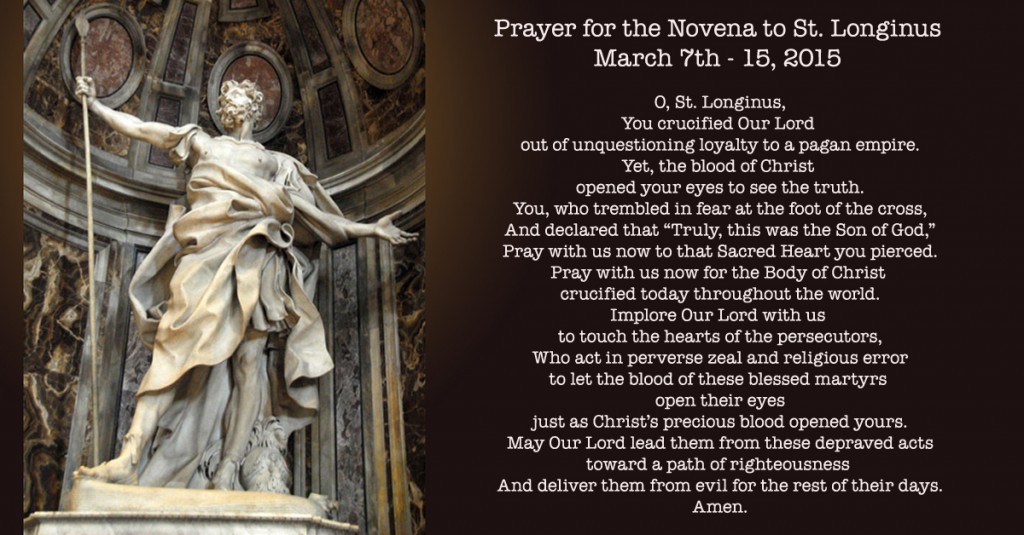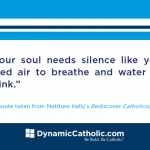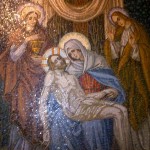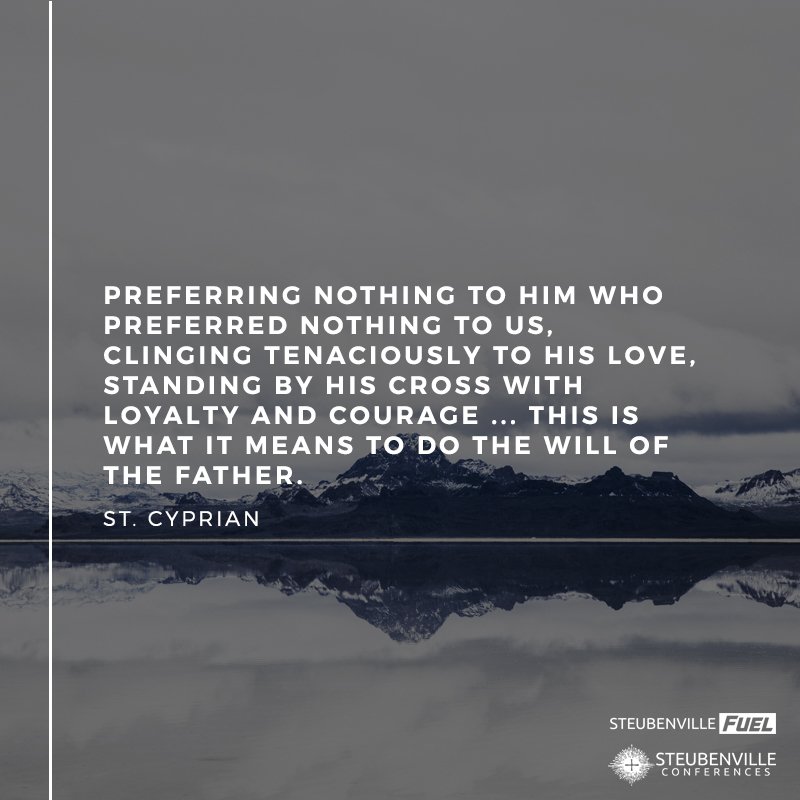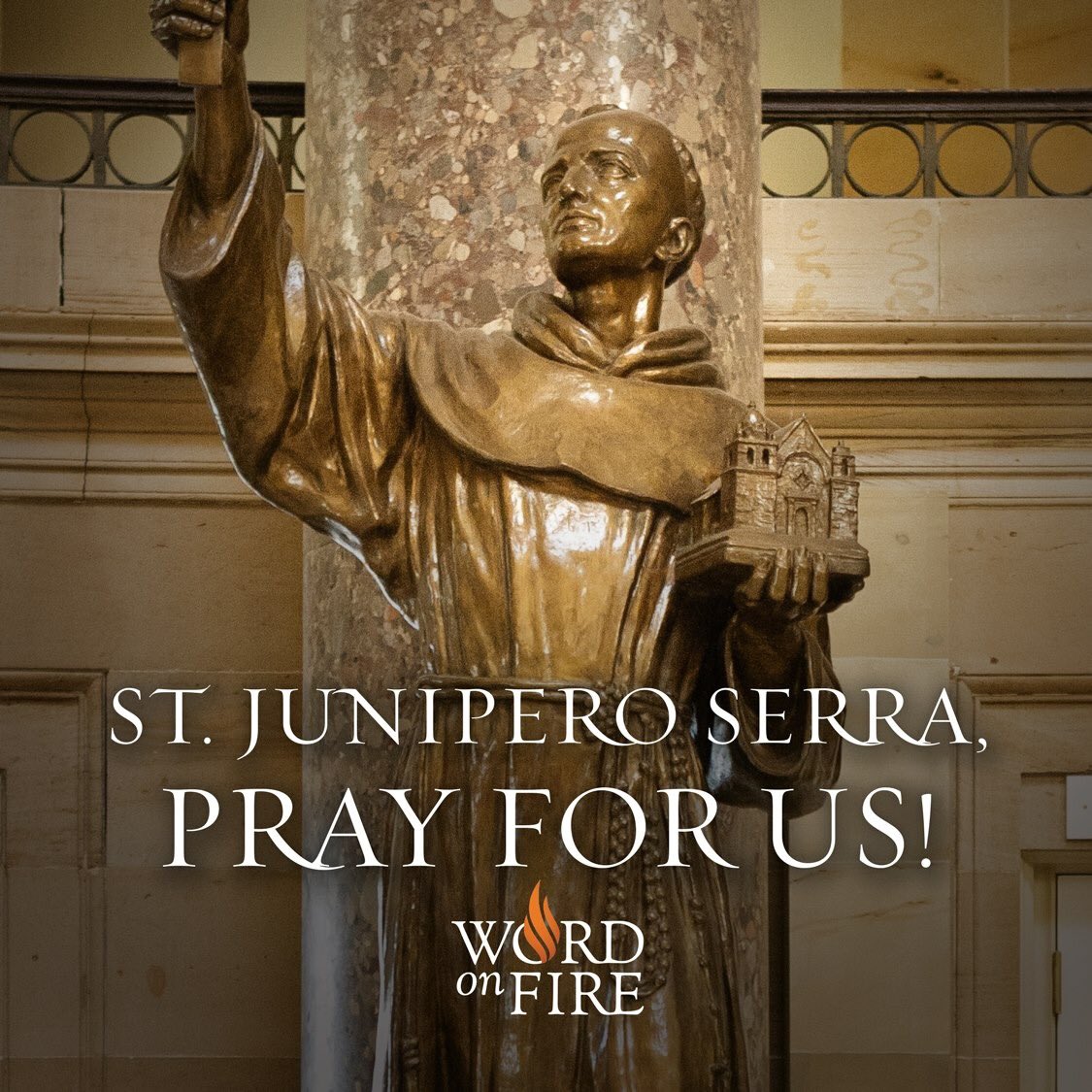1. St. Ambrose (Exposition of the Christian faith):
It cannot accurately be said of any created being that he is alone. How can anyone or anything that has fellowship in creation be separated from the rest, as though it were alone?
Each of us who turn to the homeless and poor with care and attention and mercy and love, who are not indifferent to their needs, do God’s work in helping them to learn to love and trust. For without faith in the goodness of Man, it is hard to have faith in God’s goodness too. Hence St John said: “he who does not love his brother whom he has seen, cannot love God whom he has not seen” (1 Jn 4:20). Each of us, therefore, as ambassadors of God’s love and mercy make it possible for the Lazaruses of our day to love and trust in God.
3. This tweet may stop you in your tracks:
What we have done; what we have failed to do; all our refusals of Christ will one day be measured back to us.
— FrSteveGrunow (@FrSteveGrunow) March 5, 2015
4. Magnificat today includes a homily from Pope Francis from September 2013:
The danger of complacency, comfort, worldliness in our lifestyles and in our hearts, of making our well-being the most important thing in our lives. This was the case of the rich man in the Gospel, who dressed in fine garments and daily indulged in sumptuous banquets; this was what was important for him. And the poor man at his doorstep who had nothing to relieve his hunger? That was none of his business, it didn’t concern him. Whenever material things, money, worldliness, become the centre of our lives, they take hold of us, they possess us; we lose our very identity as human beings. The rich man in the Gospel has no name, he is simply “a rich man”. Material things, his possessions, are his face; he has nothing else.
Let’s try to think: How does something like this happen? How do some people, perhaps ourselves included, end up becoming self-absorbed and finding security in material things which ultimately rob us of our face, our human face? This is what happens when we no longer remember God. If we don’t think about God, everything ends up being about “me” and my own comfort. Life, the world, other people, all of these become unreal, they no longer matter, everything boils down to one thing: having. When we no longer remember God, we too become unreal, we too become empty; like the rich man in the Gospel, we no longer have a face! Those who run after nothing become nothing
Whoa.
Kinda like realizing we’re on the road to hell if we don’t love our of our comfort zones. And help the poor.
5.
Cor, si non amat, lapideum prorsus fit. Da nobis, Domine, cor carneum quo amemus!
— Papa Franciscus (@Pontifex_ln) March 3, 2015
Or:
The heart grows hard when it does not love. Lord, give us a heart that knows how to love.
— Pope Francis (@Pontifex) March 3, 2015
I’d enjoy more Latin tweeting myself. But I don’t see that happening.
6. A reader sends his effort to get people praying a novena to St. Longinus for those who persecute Christians:
7. On “fear of the Lord” by Saint Hilary of Poitiers from today’s Liturgy of the Hours:
“Fear” is not to be taken in the sense that common usage gives it. Fear in this ordinary sense is the trepidation our weak humanity feels when it is afraid of suffering something it does not want to happen. We are afraid, or are made afraid, because of a guilty conscience, the rights of someone more powerful, an attack from one who is stronger, sickness, encountering a wild beast, suffering evil in any form. This kind of fear is not taught: it happens because we are weak. We do not have to learn what we should fear: objects of fear bring their own terror with them.
But of the fear of the Lord this is what is written:Come, my children, listen to me, I shall teach you the fear of the Lord. The fear of the Lord has then to be learned because it can be taught. It does not lie in terror, but in something that can be taught. It does not arise from the fearfulness of our nature; it has to be acquired by obedience to the commandments, by holiness of life and by knowledge of the truth.
For us the fear of God consists wholly in love, and perfect love of God brings our fear of him to its perfection. Our love for God is entrusted with its own responsibility: to observe his counsels, to obey his laws, to trust his promises. Let us hear what Scripture says: And now, Israel, what does the Lord your God ask of you except to fear the Lord your God and walk in all his ways and love him and keep his commandments, with your whole heart and your whole soul, so that it may be well for you?
The ways of the Lord are many, though he is himself the way. When he speaks of himself he calls himself the way and shows us the reason why he called himself the way: No one can come to the Father except through me.
We must ask for these many ways, to find the one that is good. That is, we shall find the one way of eternal life through the guidance of many teachers. These ways are found in the law, in the prophets, in the gospels, in the writings of the apostles, in the different good works by which we fulfill the commandments. Blessed are those who walk these ways in the fear of the Lord.
8. From the pope’s homily today:
It is impossible for one with a worldly heart to comprehend the needs and the neediness of others. With a worldly heart you can go to church, you can pray, you can do so many things. But Jesus, at the Last Supper, in the prayer to the Father, what did He pray? ‘But please, Father, keep these disciples from falling into the world, from falling into worldliness.’ Worldliness is a subtle sin – it is more than a sin – it is a sinful state of soul.”
9. Fr. Roger Landry:
At the very end of the Gospel today, the Rich Man begs that Lazarus return to his brothers to warn them of the impending doom unless they change and begin to care for those in need, saying that if someone from the dead returns to them they would repent. But Abraham replies that if they don’t believe in Moses and the Prophets, neither would they believe should someone back from the dead bring them this message. Well, we’ve been given the privilege that the brothers of the Rich Man never received. Jesus has in fact come back from the dead to give us this message himself. Here at Mass we encounter him risen, not under the appearance of a poor man but under the even humbler appearances of bread and wine. But it’s truly Jesus. Today he gives us his Body and Blood and tells us, “Do this in memory of me.” This means not just that we celebrate the Mass in his memory but that we, receiving the message he gives us in his own body language, go and do the same, giving our body, our blood, our sweat, our tears, our food, our material resources to others. That is path of life, the path of watered roots and fruitfulness in season and out, the path of love that will bring us to experience eternal joy with him, with Lazarus, and with all the saints. As we prepare to receive him today, let us ask him for the grace to remain in a holy communion always with his self-giving charity so that we, recognizing him here, may recognize him always in the disguise of the poor and love him there as much as we do here!
10. From Fr. Paul Murray’s beautiful book Scars: Essays, poems and meditations on affliction:
The Gift
Amazing—
no matter how
tired you feel
under the chill
downpour of
a dead routine
or how your
nerves and senses
ache, it’s hard
not to affirm
the thought
that even under
the malign
powers of rust
and rain, the heart
survives, the soul
retains its gift
of weathering.
Also: There’s another list of 12 over at National Review Online here, with some Archbishop Chaput and Pope Francis, among others.

